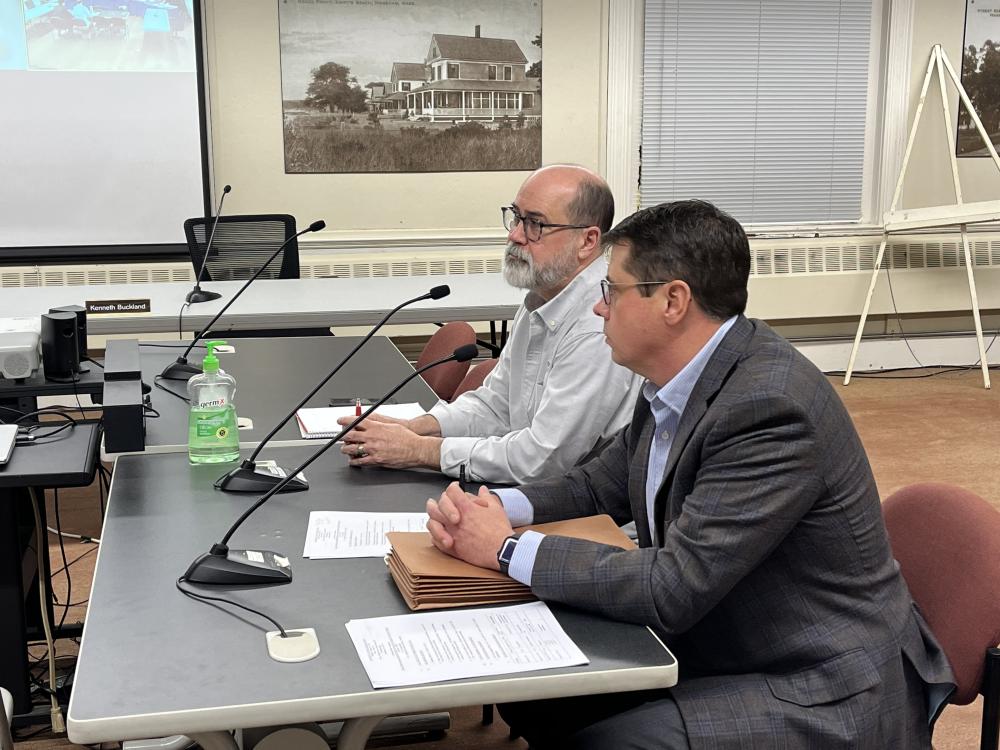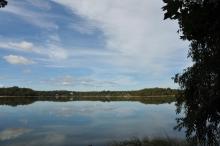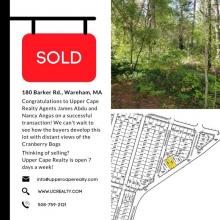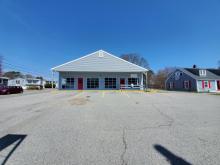Solar companies still can’t shine light on decommissioning costs
After months of tough scrutiny from the Planning Board, representatives of Borrego Solar and New Leaf Energy still cannot confirm the exact cost of decommissioning the solar panels which would populate proposed solar fields at 27 Charge Pond Road and 150 Tihonet Road.
At the Planning Board meeting on Monday, Jan. 23, Gregory Sampson of the Womble Bond Dickinson law firm and New Leaf civil engineer Dean Smith once again faced questions about what would happen to the solar panels when they were no longer useful, and who would be responsible for them.
Questions about the cost, difficulty and environmental impact of decommissioning the solar panels have hounded Borrego and New Leaf for months. The Planning Board has repeatedly asked for more information, which Sampson said Borrego and New Leaf have been eager to provide.
"We are still looking to comply with your requirement to the decommissioning," Sampson said. "The estimates that we delivered in December are still our best estimates."
The current estimate is that it would cost $8 million, or $100,000 per megawatt, to decommission the solar panels.
"$100,000 per megawatt is not a number that leaves us with comfort," said Planning Board Chair Michael King. "And that doesn't include batteries... The only safety net that the town has for protecting itself from a major cleanup issue is money to do it. And there's no guarantee that this is enough money."
Sampson assured the Planning Board that Borrego and New Leaf would continue to work with the town, even though he can't give a cost estimate.
"We're not looking to walk away from the obligation," he said.
"I don't think the door is closed there," Smith said. "I don't think I'm prepared to agree to those amounts on my own."
Sampson and Smith sent the Planning Board a document confirming that they would be held responsible if anything happened to the solar panels. The owner of the land that the solar panels are on could also sue Borrego and New Leaf if the obsolete solar panels are not cleaned up in a timely fashion.
"That doesn't resolve tons of material on the land," King said. "There's no security there for the town."
Sampson and Smith told the Planning Board that they planned to hire an independent expert to judge the possible cost of decommissioning the solar panels.
To that, King said: "The peer review is a great idea, but let's face it, there is no expert on the future."
As they had in previous meetings, the Planning Board was wary of the proposed solar fields due to the number of changes that could take place over their 20-year lifespan.
"We're trying our best to make conscious estimates of what's going to happen," King said. "We don't want to see these projects fail, but the reality is we have to look at the town's best interests as much as we look at your rights to develop."
The land on which the solar panels would be built is currently owned by the A.D. Makepeace Company, but the company could sell the land — and the responsibility of decommissioning the panels — at any time, to anyone, without needing the Planning Board's approval.
"It's hard for us to know who is going to be responsible for what," said Planning Board Member Sherry Quirk.















